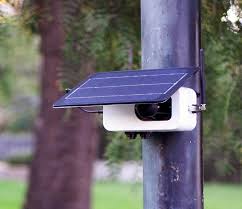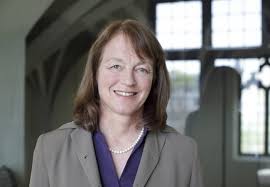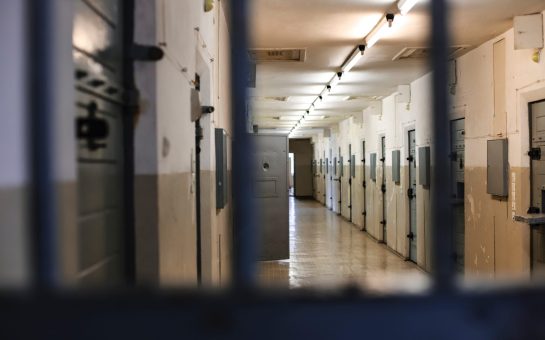The Mayor of London will pledge £750,000 and work in partnership with Imperial College London and Bloomberg Philanthropies to reduce pollution levels with new sensors.
The power trio are combining science & funding to deliver more than 100 new solar powered air quality units next year as part of the ‘Breathe London’ project.
Hospitals, schools and businesses across London will be able to monitor levels of air pollution & source data for local projects or schemes.
Khan said: “This is a major milestone for our world-leading Breathe London sensor network. Giving Londoners the opportunity to see the levels of pollution in their local area will improve awareness and help people reduce their exposure.
It will also help City Hall, TfL and the boroughs better target efforts on improving air quality for all.
As we face up to the current climate emergency, I hope the success of this scheme will act as a blueprint for cities around the world to battle their own toxic air emergencies.”

The announcement comes following a two-year pilot phase initially funded by the Children’s Investment Fund Foundation and Clean Air Fund.
The Breathe London project aims to revolutionise Londoners’ access to reliable pollution data and will complement existing reference grade monitors currently owned and funded by London boroughs.
The new initiative will allow Londoner’s for the first time to ‘buy-in’ to the existing Breathe London network which in turn will reduce the cost of sourcing reliable air data for local projects or schemes like School Streets.
Community groups and charities will also be eligible for discounted rates to provide them access to a network that has been prohibitively expensive in the past.
The project supported by Bloomberg Philanthropies will also focus on reaching communities that research shows have previously been less engaged with environmental programmes, including low-income and Black, Asian and Minority Ethnic groups.

The low-cost solution will support London’s green recovery from the coronavirus pandemic and ensure boroughs faced with budget constraints will still be able to improve their pollution reference monitoring.
Khan said: “The onset of coronavirus – a vicious serious disease – has reminded us how important our work to clean up London’s toxic air is.
“It requires bold and innovative action and we can’t win this battle alone.
“This is why I have consistently demanded that the Government match my ambitions and improve the new Environment Bill to include legally binding WHO recommended limits to be achieved by 2030, and to give cities the powers and funding we need to consign air pollution to the history books once and for all.”

The new pollution detecting devices weigh just 1.2kg and the devices will measure nitrogen dioxide (NO2)and particulate matter (PM2.5) in London’s air.
Imperial College London and global sensing and data analytics company Clarity Movement Co. have been pioneering the leading edge technology.
Professor Alice Gast, President of Imperial College London, said: “Air pollution is a grave threat to the health of all Londoners, with the most vulnerable communities often hardest hit.
“The Breathe London community sensor network will equip our city with the data it needs to drive change and protect Londoners at both a local and city-wide level.
“At Imperial we are determined to help improve London’s air through our science and our links with local communities. We are grateful to the Mayor of London and Bloomberg Philanthropies for their pivotal investment in this vital work.”

Founded in 2014, Clarity Movement Co currently provides air quality monitoring services to more than 85 cities across approximately 40 countries.
Meiling Gao, chief operations officer at Clarity, said: “London is a pioneering example to the global community on how to take immediate, achievable, and localised action against the global air pollution crisis, and we’re honoured to be a technology partner in this effort.
“The next phase of the Breathe London air quality monitoring project will not only empower London with data to better understand and respond to air pollution, but it will also serve as a blueprint for how governments worldwide can leverage affordable IoT technology to build healthier and more sustainable communities.”
The bright minds of the Breathe London team have experimented with different kinds of sensor technology, including mobile sensors fitted to Google Streetview Cars, and wearable sensors monitoring children’s exposure to air pollution on their journey to school.

Michael R. Bloomberg, founder of Bloomberg LP and Bloomberg Philanthropies and 108th mayor of New York City said: “With more real-time data on local air quality, cities and communities can act quickly to cut pollution, protect public health, and grow the economy.
“London is already a global leader in using technology to better understand and address air pollution. At Bloomberg Philanthropies, we’re glad to expand our partnership with Mayor Khan – and showcase to more cities around the world a low-cost way to track pollution and improve their residents’ quality of life.”
The news of the second phase comes in the same week as coroner Philip Barlow made legal history by ruling air pollution was a cause of death of a nine-year-old girl Ella Kissi-Debrah in February 2013.
Jemima Hartshorn, founder of Mums for Lungs said: “We know that air pollution harms babies, children and in fact everyone’s health – from low birth weight to respiratory diseases, cancer and dementia – air pollution contributes to it all.
“Understanding local air quality will enable decision makers to prioritise action to reduce air pollution at hotspots. It will also help raise awareness of air pollution, which is critical for reducing it.”
For more information visit: www.breathelondon.org.




